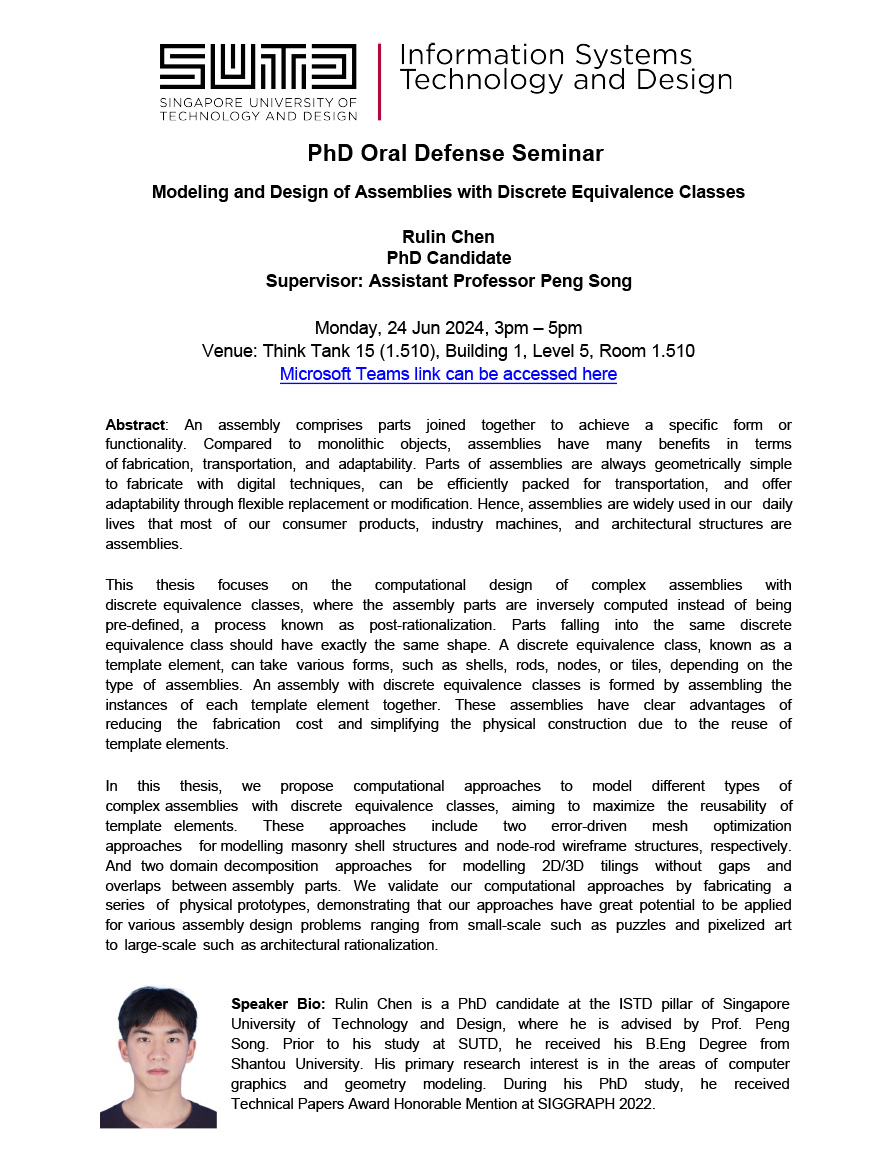ISTD PhD Oral Defense presented by Rulin Chen – Modeling and Design of Assemblies with Discrete Equivalence Classes
ISTD PhD Oral Defense presented by Rulin Chen – Modeling and Design of Assemblies with Discrete Equivalence Classes
Abstract
An assembly comprises parts joined together to achieve a specific form or functionality. Compared to monolithic objects, assemblies have many benefits in terms of fabrication, transportation, and adaptability. Parts of assemblies are always geometrically simple to fabricate with digital techniques, can be efficiently packed for transportation, and offer adaptability through flexible replacement or modification. Hence, assemblies are widely used in our daily lives that most of our consumer products, industry machines, and architectural structures are assemblies.
This thesis focuses on the computational design of complex assemblies with discrete equivalence classes, where the assembly parts are inversely computed instead of being pre-defined, a process known as post-rationalization. Parts falling into the same discrete equivalence class should have exactly the same shape. A discrete equivalence class, known as a template element, can take various forms, such as shells, rods, nodes, or tiles, depending on the type of assemblies. An assembly with discrete equivalence classes is formed by assembling the instances of each template element together. These assemblies have clear advantages of reducing the fabrication cost and simplifying the physical construction due to the reuse of template elements.
In this thesis, we propose computational approaches to model different types of complex assemblies with discrete equivalence classes, aiming to maximize the reusability of template elements. These approaches include two error-driven mesh optimization approaches for modelling masonry shell structures and node-rod wireframe structures, respectively. And two domain decomposition approaches for modelling 2D/3D tilings without gaps and overlaps between assembly parts. We validate our computational approaches by fabricating a series of physical prototypes, demonstrating that our approaches have great potential to be applied for various assembly design problems ranging from small-scale such as puzzles and pixelized art to large-scale such as architectural rationalization.
Speaker’s Profile
Rulin Chen is a PhD candidate at the ISTD pillar of Singapore University of Technology and Design, where he is advised by Prof. Peng Song. Prior to his study at SUTD, he received his B.Eng Degree from Shantou University. His primary research interest is in the areas of computer graphics and geometry modeling. During his PhD study, he received Technical Papers Award Honorable Mention at SIGGRAPH 2022.

